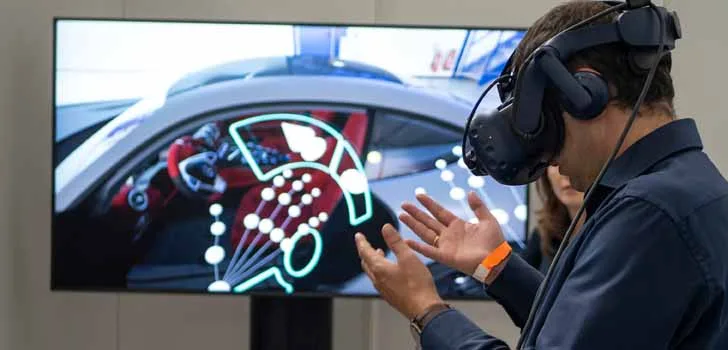The University of Michigan (UM) is adding a whole new dimension to its coursework.
UM has launched the first three of ten planned online learning courses incorporating extended reality (XR) into the experience.
The courses include “People, Technology, and the Future of Mobility,” and “Advancing Health Equity: A Guide to Reducing in Healthcare.”
The “Feedback Loops: How to Give and Receive High-Quality Feedback” coursework includes “Feedback Fundamentals.”
UM is developing and providing the coursework through its Center for Academic Innovation (CAI) in collaboration with Coursera.
CAI Executive Director James DeVaney says the launch is the first attempt to utilize XR for more-immersive and impactful education.
According to DeVaney, the courses teach and help students practice critical workforce skills in an immersive setting.
“This initiative leverages our strengths in design and storytelling as we bring immersive learning to scale in the service of innovative workforce development and lifelong learning,” says DeVaney in a press release. “We’re excited to expand our partnership with Coursera once again as we continue to advance the global learning skills revolution.”
A Deliberate Approach to Education
UM says CAI took a deliberate approach when building the immersive coursework.
The approach emphasized inclusion and access, centering initial offerings on interactive 360° video and coursework across various professional disciplines.
Students can access the coursework via headset, mobile device, or personal computer without additional hardware.
UM encourages students to use the device that is most comfortable for them.
UM says the initial three offerings teach professional skills in established and growing fields like public speaking and mobility.
Interactive 360° videos allow students to practice skills in a contextualized learning environment while immersed in a real-life scenario.
According to UM, the system helps students understand concepts spatially and visually and explore environments normally inaccessible otherwise.
Ford School of Public Policy Professor Elisabeth Gerber created the “Future of Mobility” course, which examines mobility technology’s social impact.
Law School Clinical Assistant Professor Patrick Barry created the “Feedback Loops” course, which teaches giving and receiving quality feedback.
The course allows students to choose from several physical settings and speech styles to practice short speech art and rhythms.
University of Michigan Assistant Professor Ebbin Dotson created the “Advancing Health Equity” course.
The course places students in scenarios where they witness or experience bias in health care.
“Watching the final version of the XR 360 case was amazing,” says Dotson. “The actors were great, the writing was clear and impactful, and XR enhanced a number of the behavior nuances that are impossible to teach in a traditional mode of instruction.”
UM says future courses will incorporate additional XR elements for contextualized learning, including virtual reality, augmented reality, and virtual production.
According to UM, additional XR-enhanced experiences should launch in mid-2023.
UM says the coursework will include topics like educational course design, leadership, nursing education, mindfulness, and negotiation.

